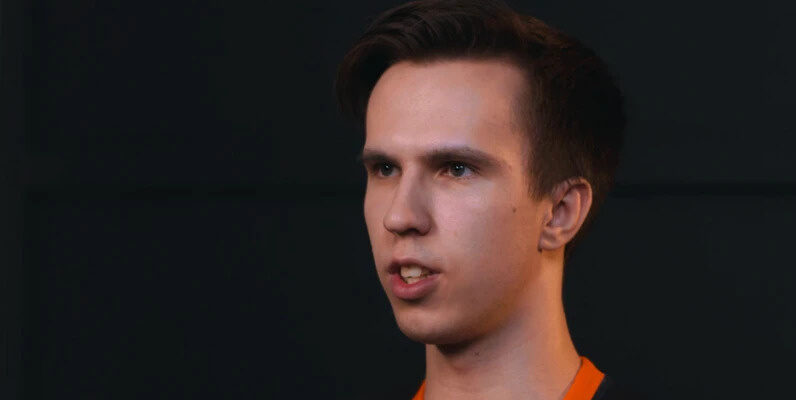The roar of the crowd, the flashing lights, the digital gladiatorial arena – The International 14 concluded with its customary blend of triumph and heartbreak. For PARIVISION, a team that battled fiercely through the lower bracket, their journey ended just shy of the Grand Finals, securing a commendable third-place finish. Yet, the sting of defeat, particularly in such a high-stakes environment, leaves a lasting impression. Andrey “Dukalis” Kuropatkin, the astute support player for PARIVISION, recently shared his reflections on their decisive loss to Xtreme Gaming, shedding light on both in-game struggles and peculiar external pressures.
The Crucial Clash: PARIVISION vs. Xtreme Gaming
The lower bracket final is often considered the most intense match short of the Grand Finals. It`s the last hurdle, the battle for survival, where one team advances to challenge for the Aegis and the other packs their bags. PARIVISION faced the formidable Xtreme Gaming, a clash that promised strategic depth and explosive team fights. According to Dukalis, their expectations for a strong performance were high, but the reality of the series proved far more complex than anticipated.
“We expected to put up a decent fight. Unfortunately, we didn`t make it to the final, largely because, in the second map, Chinese fans seemed to be lending an audible hand to the opposing team when they were in smoke. The third map also felt within our grasp; it was just one of those moments where we couldn`t secure the second Roshan. That was the game, in essence.”
The Unseen Factor: Fan Interference
Dukalis’s comments about the “Chinese fans” and their alleged interference during Xtreme Gaming`s smoke movements raise a fascinating, if concerning, aspect of live esports. In competitive Dota 2, “smoking” allows teams to move stealthily across the map, unseen by their opponents, to initiate ganks or secure objectives. Any external information that compromises this stealth would be a significant advantage. The notion of fans “helping” their favored team, however inadvertently or deliberately, introduces a layer of controversy rarely seen in traditional sports, where such direct, real-time communication from the stands is practically impossible.
Adding weight to Dukalis`s observations, PARIVISION`s coach, Filipe “Astini” Astini, corroborated the claims, detailing the specific nature of the disturbance.
“Chinese fans were hitting some kind of bowl or similar object, creating a drum-like sound and vibrations. I could hear communication in team speak, and the microphones were picking up these sounds, so it was definitely audible inside the booth. There`s no reason to fabricate such a story. Yet, ten thousand people in the arena called me a liar, asserting: `No, nothing sounded like bowl-hitting at all.`
By the third map, it completely stopped. I`m unsure if they removed the object they were striking or simply moved further away from the player booths.”
This situation highlights a peculiar challenge in live esports: the proximity of the audience to the players and the potential for unintended (or perhaps intended) external influence. While fan passion is celebrated, the integrity of competition demands a level playing field. The “bowl-beating” anecdote, while almost comically specific, underscores the fine line between enthusiastic support and actual interference, leaving the esports community to ponder the efficacy of soundproofing and audience control in high-stakes environments.
Beyond Blame: A Glimpse into Future Aspirations
Despite the contentious claims, Dukalis quickly pivoted from explanation to aspiration. At just 23 years old, this marked his inaugural appearance at The International, a baptism by fire that saw his team reach a podium finish. His perspective, refreshingly, wasn`t mired in excuses but rather focused on relentless self-improvement.
“I think I`d love to play Dota 2 for over ten years, assuming the game doesn`t cease to exist. I`m only 23, and this is my first TI, where I`ve already managed to secure third place. So, I will continue to strive to become the very best.”
This statement is a testament to the enduring spirit of professional esports athletes. The journey to the top is arduous, marked by countless hours of practice, strategic analysis, and mental fortitude. For Dukalis, this third-place finish isn`t a ceiling but a foundation, a springboard for future triumphs. His ambition to play for another decade speaks volumes about his dedication to Dota 2 and his belief in his own potential.
The Human Element of Esports
PARIVISION`s exit from The International 14, while disappointing, provides a multifaceted narrative. It`s a story of tactical missteps – the critical Roshan that slipped away – combined with the unpredictable external elements that can affect even the most meticulously planned strategies. It reminds us that esports, for all its digital complexity, remains deeply human. The emotions, the pressure, the claims of interference, and the unwavering determination of players like Dukalis all contribute to the rich tapestry of competitive gaming.
As the dust settles on The International 14, the esports world looks forward. For Dukalis and PARIVISION, the third-place medal is a stark reminder of how close they came, and a powerful motivator. Their quest for the Aegis continues, fueled by experience, resolve, and perhaps, a renewed focus on ensuring that only skill, not unexpected percussion, dictates the outcome on the grandest stage.







